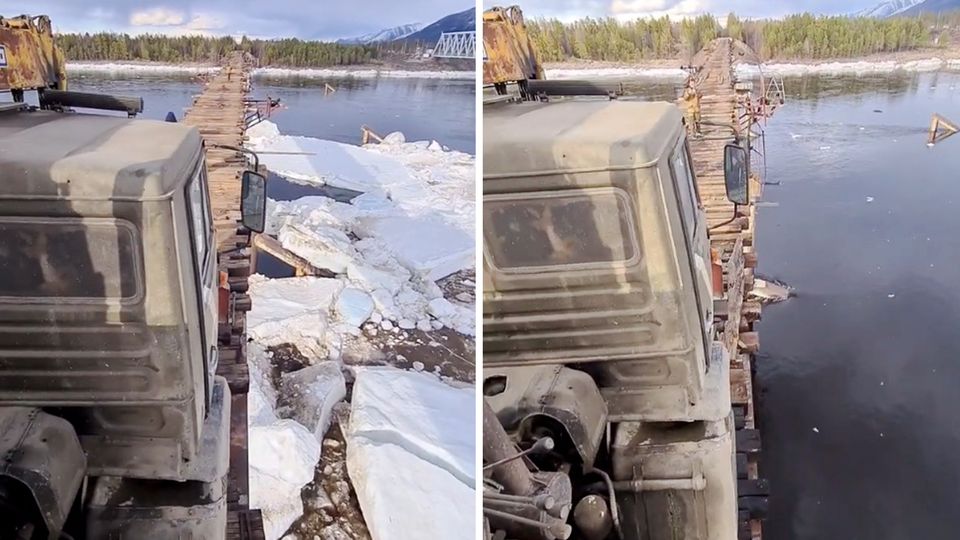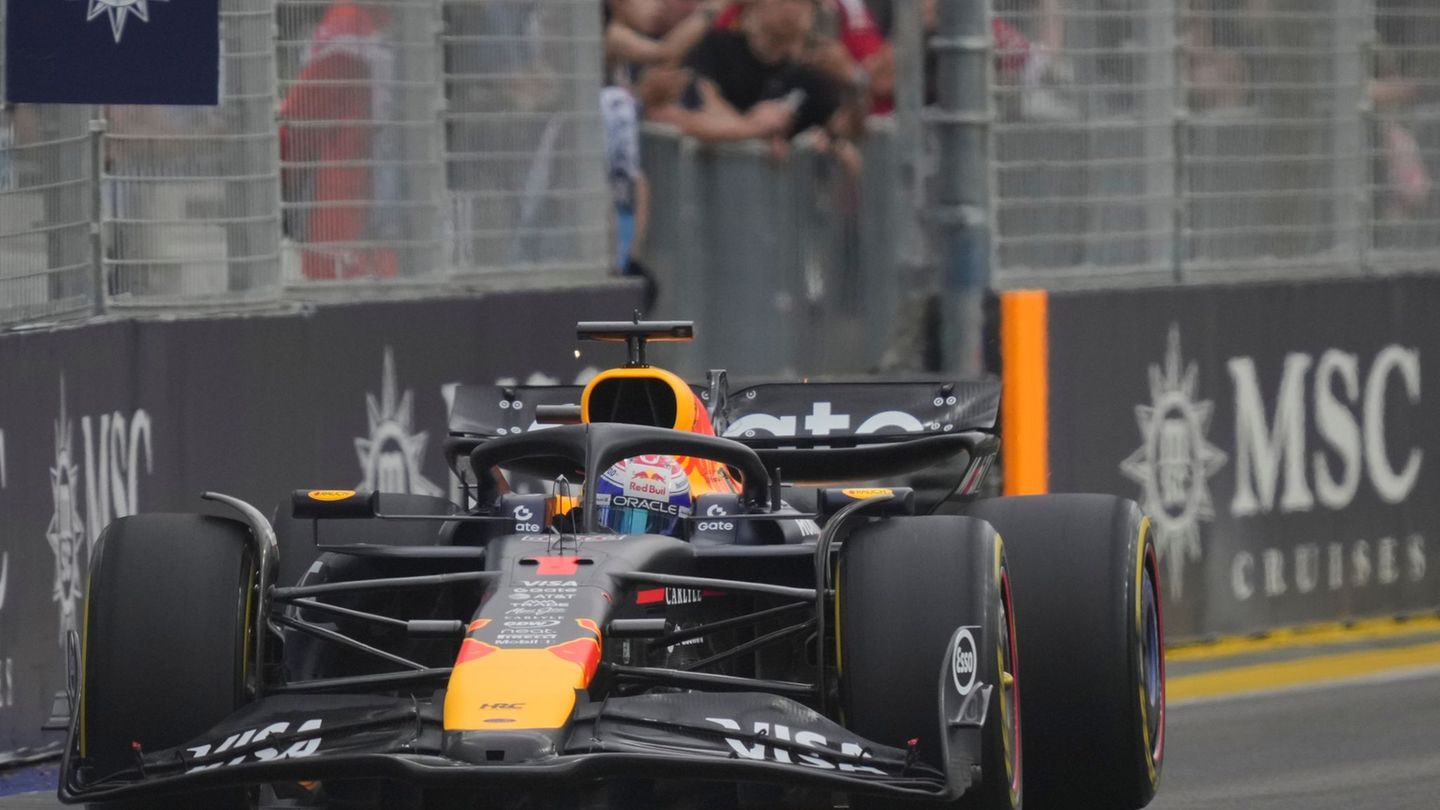Empty shelves are causing problems everywhere in Great Britain – Brexit is not the only reason for this, there is also a lack of truckers. An expert recognizes a similar trend in Germany.
In the supermarket there are gaps on the shelves, dairy farmers are left sitting on their milk, there are no mattresses at Ikea and there is a lack of important chemicals in sewage treatment plants. There is hardly an industry that is not complaining in Great Britain these days. The reason is almost always the same: There is a lack of people who can get things from A to B. These are usually people who drive trucks. According to the Road Haulage Association, the UK is currently short of around 100,000 of them.
“There is a worldwide need for drivers”
As is so often the case, this is also due to Brexit and its hurdles. In addition, the corona pandemic has exacerbated the situation. But experts do not expect the island to be left alone with the problem. “What is happening in Great Britain has been accelerated by Brexit. But I firmly assume that we will have the same situation in Western Europe, only a little later,” said Dirk Engelhardt from the Federal Association of Freight Transport, Logistics and Disposal in an interview with the DPA news agency. “We warn that we will face a supply collapse in Western Europe too.”
In Germany, too, there were already between 60,000 and 80,000 truck drivers missing, according to Engelhardt – and the trend is rising. Every year around 30,000 drivers retire and only around 15,000 young people are coming. “There is a worldwide need for drivers.”
The shortage has a lot to do with the fact that the job of truck driver or truck driver – which has so far been rare – is perceived as less and less attractive. Long waiting times in traffic jams, it is difficult to reconcile family and work and a great lack of suitable parking spaces where you can safely stand or shower and eat. In addition, trucks are perceived as large, noisy polluters who do not feed other road users, but rather disturb them. “The drivers are worried about the bad image. We need a new perception of the job,” says Engelhardt.
The milk is not collected from the farmer
While the shortage of drivers in Germany still goes unnoticed in many places, it is already evident in the UK when shopping at the supermarket. There are always bottlenecks in various products and there are unusually large gaps on the shelves. The BBC interviewed a dairy farmer who was about to throw away thousands of liters of milk because it was not picked up as usual. The “Guardian” reported on relaxed rules for sewage treatment plants that cannot carry out certain processes because they lack the appropriate chemicals. The first supermarkets are expecting price increases if things continue like this – and there is no improvement in sight for the time being. Ian Wright, head of the Food and Drink Federation, also assumes, according to the “Spiegel”, citing a “BBC” interview that British customers would have to live with restrictions on a permanent basis. The days when you could buy everything you wanted in the supermarket are over. “And I don’t think that’s coming back either,” Wright said.
A spokesman for Prime Minister Boris Johnson said on Friday that unlike the food association, they do not expect the shortages to last.
EU workers leave the UK
During the pandemic, many European drivers, for example from Poland or Romania, left the UK and returned to their families in their home countries. There are several reasons why many of them will not return. On the one hand, the free movement of EU workers has been a thing of the past since Brexit and complex and expensive visa procedures are necessary. At the same time, however, drivers are also needed in many other European countries, so that the attraction of Great Britain is waning.
New trade barriers and controls at the border make the situation even more difficult. The shortage also contributes to falling exports to the EU, as the British Chamber of Commerce emphasizes. This also affects trade with Germany: For the first time in more than 70 years, Great Britain could no longer appear among the ten most important trading partners of the Federal Republic, as current data shows.
The British economy got off to a weak start in the second half of the year. The gross domestic product (GDP) rose in July by 0.1 percent compared to the previous month, as the statistics office ONS announced on Friday. Overall economic output is still 2.1 percent below the level it had reached before the corona pandemic. Rising corona infections and a pronounced shortage of materials and workers are slowing recovery. In addition, there is the high shortage of truck drivers.
Expert calls for trucks with sanitary facilities
The Road Haulage Association is calling for easier visa rules for foreign workers. Dirk Engelhardt from the German industry association is skeptical that this will solve the problem. With a view to Germany, he advocates the approval of longer trucks in which drivers with integrated sanitary facilities and better equipment can spend their rest periods more independently.
Otherwise Engelhardt sees black: “Hamster purchases like at the beginning of the corona pandemic could become daily business if countermeasures are not taken quickly,” says the logistics expert – and he is not alone. In Great Britain, the head of the Icelandic supermarket chain has already warned that Christmas may have to be canceled if something doesn’t finally change. Because already now it is foreseeable that it could become difficult with the usual supplies that markets normally create before the holidays.
sources: DPA;

See in the video: Nerve-racking recordings from Siberia in Russia. A truck drives over a wooden bridge only two meters wide – the tires on both sides are only centimeters away from the abyss. The “Vitim River Bridge” is considered to be the most dangerous bridge in the world.
David William is a talented author who has made a name for himself in the world of writing. He is a professional author who writes on a wide range of topics, from general interest to opinion news. David is currently working as a writer at 24 hours worlds where he brings his unique perspective and in-depth research to his articles, making them both informative and engaging.




